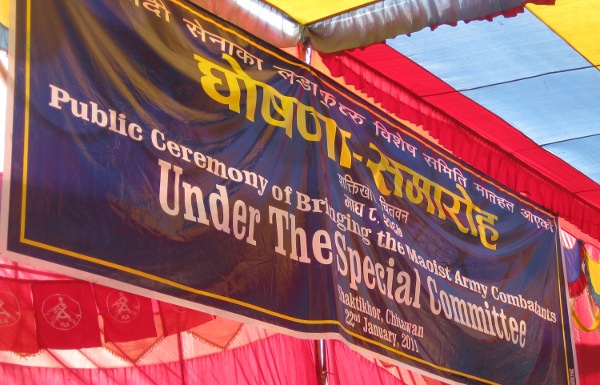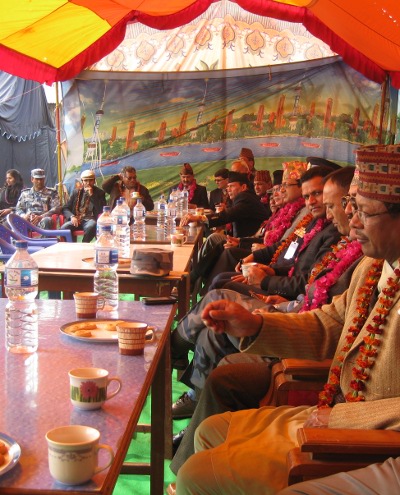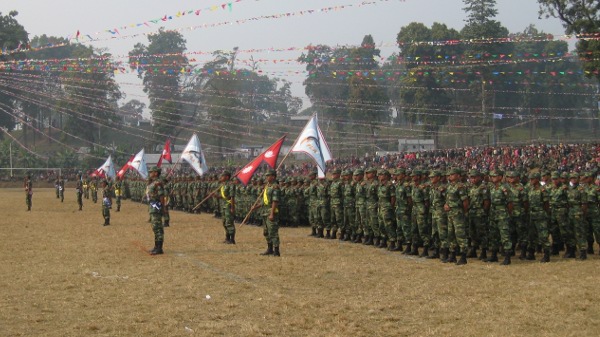Paul Jackson is Professor of African Politics and Head of IDD. His current research interests include the nature of the liberal state and the politics of liberal state-building in post-conflict situations; security sector reform and the relationship between security and development; external intervention in security issues; and governance and security.
Nepal has had a traumatic political history full of huge political transitions. Since its transition to democracy from an autocratic monarchy in 1990, Nepal has experienced more than its fair share of upheaval. In particular the failure of the post-democratic revolution Governments of the early 1990s to address the root causes of poverty and alienation in the areas beyond the Kathmandu Valley led to the development and rapid escalation of a Maoist insurgency that started in 1996 and was only recently ended with a Comprehensive Peace Agreement (CPA) in 2006.
However, even following the CPA, the political parties have failed to agree a new constitution and a deadline of May 2010 came and went, resulting in an extension until May 2011. This has had important consequences for the former combatants and for the broader security of Nepal. In particular the fate of the almost 20,000 Maoist guerrillas has yet to be decided after a four year wait and they are getting impatient. In the event a number from specific regions, particularly the Terrai, along the border with India, have taken up arms in reaction to the ‘betrayal’ of their regional aspirations by the main political parties, including the Maoists.

In the middle of all of this, I am working with a Nepali NGO called NIPS (The Nepal Institute of Policy Studies) which has very high access (advisers to the Government, etc.) and is staffed by one of our alumni from the security and justice course run from within IDD. At the same time, NIPS is also supported by a DFID programme through the INGO Saferworld (whose Nepal operations are run by another alumnus). It is via these two that I was invited to come to Nepal as a resource person to support the Special Committee on the Rehabilitation and Integration of the Maoist Combatants.
In a nutshell, since the CPA in 2006, around 20,000 former Maoist fighters have been held in seven main cantonments waiting to be demobilised. Most of them see themselves as a victorious army (at least not a defeated one) and are therefore seeking parity with the Nepali Army that has itself just got over the trauma of the Royal massacre in Kathmandu. Since it was a Royal Army and Nepal is now a Republic, the Nepal Army is undergoing something of an identity crisis.
 My role in all of this is to address the issue of what to do with the combatants. We started off last year with the Maoists declaring that they would all go into the army, which was not feasible. We are now down to around 7,000 who may integrate into the army and police with the rest going through rehabilitation and then reinsertion into civilian life. Most of the officers have already reinvented themselves as civilian politicians anyway. My role is to persuade the army, the Maoists and the politicians that there is a practical way of doing this integration (which there is) whilst drawing on international experience of what happens after wars.
My role in all of this is to address the issue of what to do with the combatants. We started off last year with the Maoists declaring that they would all go into the army, which was not feasible. We are now down to around 7,000 who may integrate into the army and police with the rest going through rehabilitation and then reinsertion into civilian life. Most of the officers have already reinvented themselves as civilian politicians anyway. My role is to persuade the army, the Maoists and the politicians that there is a practical way of doing this integration (which there is) whilst drawing on international experience of what happens after wars.
This is a fascinating and deeply frustrating role that draws on my independence as an academic based at Birmingham. It is such a sensitive issue that other external actors have been rejected as being biased. This January, for example, the UN mission here (UNMIN) left because the Government refused to renew its mandate on the basis that it was ‘biased’ towards the Maoists. My job so far has been to convince all parties that I am neutral, have no interest in the final outcome and am just concerned about the best technical-political solution. This trip has consisted of several meetings but as a measure of where I have now found myself I was called by both the President and the Prime Minister, who I met and also the senior Maoist command including the head of the army and also Prachanda himself, the charismatic head of the Maoists and core of the ‘personality cult’ they developed.
No pressure then.
I am going back in March to further the process and to see if we can agree a way forward that is acceptable to all parties. I should also point out that one of the influential articles on the history of the revolt was written by a certain Andrew Nickson who managed to predict that a revolt was likely and also predicted its similarity to the Peruvian Shining Path movement – but did so before the war.

